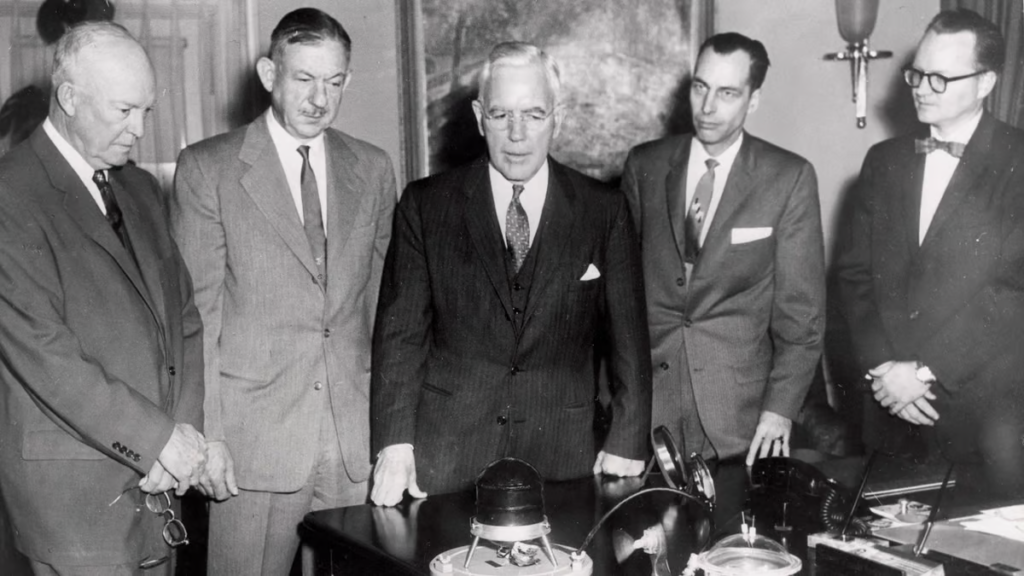The assassination of John F. Kennedy, the 35th President of the United States, on November 22, 1963, remains one of the most extensively analyzed and debated events in modern history. While the Warren Commission, the official investigation into Kennedy’s death, concluded that Lee Harvey Oswald acted alone in shooting the president, numerous theories have since surfaced challenging this narrative. Among these, allegations of involvement by the Central Intelligence Agency (CIA) stand as some of the most persistent and controversial.
This article explores the origins of the CIA-related theories, official findings, recent developments, and the lingering public fascination with the assassination of JFK.
Historical Context and CIA Theories

The roots of theories alleging CIA involvement in Kennedy’s assassination are deeply tied to the political and geopolitical climate of the early 1960s. President Kennedy’s administration had clashed with the CIA over several high-profile issues, including:
- Bay of Pigs Invasion (1961): The CIA’s failed attempt to overthrow Fidel Castro’s communist regime in Cuba embarrassed the United States and strained relations between Kennedy and the intelligence community. The president publicly took responsibility for the debacle but later expressed deep distrust of the agency, even considering efforts to scale back its influence.
- Firing of CIA Officials: In the aftermath of the Bay of Pigs, Kennedy dismissed prominent CIA leaders, including Director Allen Dulles, further fueling speculation about tensions between the administration and the agency.
- Cold War Strategies: The CIA was heavily involved in Cold War covert operations during this time. Some theorists suggest the agency may have viewed Kennedy’s foreign policy decisions as a threat to U.S. dominance and its covert agenda.
These events serve as the foundation for theories that the CIA could have played a role, either directly or indirectly, in Kennedy’s assassination. Such claims suggest that Kennedy’s push to overhaul intelligence operations may have alienated powerful figures within the agency.
The Warren Commission and Early Investigations
The Warren Commission, established by President Lyndon B. Johnson shortly after Kennedy’s death, concluded in its 1964 report that Lee Harvey Oswald acted as a lone gunman. Oswald, a former Marine and self-proclaimed Marxist, allegedly shot Kennedy from a sixth-floor window of the Texas School Book Depository in Dallas, Texas.
However, critics of the Warren Commission’s findings argue that its investigation was limited in scope and failed to address critical questions. Many theorists have pointed out inconsistencies in witness testimonies, unexplained evidence, and forensic analyses that challenge the lone-gunman theory.
The House Select Committee on Assassinations (HSCA) Findings

In 1976, renewed public interest in the Kennedy assassination prompted Congress to form the House Select Committee on Assassinations (HSCA). The HSCA’s investigation, completed in 1979, acknowledged flaws in the Warren Commission’s work and concluded that Kennedy’s murder was likely the result of a conspiracy. While the committee did not definitively identify the conspirators, it ruled out the Soviet Union, Cuba, and organized crime as primary instigators.
The HSCA considered the possibility of CIA involvement but found no direct evidence implicating the agency. However, it did criticize the CIA for its lack of transparency, noting instances where the agency withheld information from the committee. This further fueled public skepticism about the CIA’s potential role in covering up critical details about the assassination.
Recent Developments and Testimony
The debate surrounding the CIA’s possible involvement in Kennedy’s assassination resurfaced with renewed intensity in subsequent decades. The release of thousands of government documents related to the assassination, most recently under the John F. Kennedy Assassination Records Collection Act, has shed light on aspects of the case that were previously unknown. While these documents have provided valuable context about Cold War-era covert operations, they have yet to offer conclusive evidence linking the CIA to Kennedy’s death.
In 2025, Congress heard testimony from witnesses who alleged that three senior CIA officials—James Angleton, Richard Helms, and George Joannides—might have been “complicit” in events leading up to or following the assassination. The allegations center on claims that the officials either withheld information from investigators or acted negligently in their oversight of operations involving Lee Harvey Oswald.
These claims reignited public calls for a comprehensive, independent investigation, with advocates arguing that the full truth surrounding Kennedy’s assassination has yet to be uncovered.
Public Fascination and Lingering Questions

For decades, the Kennedy assassination has captured the imagination of the American public and spurred numerous films, books, and documentaries exploring the case. Theories range from CIA involvement and mafia complicity to Soviet or Cuban retaliation during the height of Cold War tensions. Key questions fueling conspiracy theories include:
- The Grassy Knoll: Some witnesses reported hearing gunfire from an area near the “grassy knoll” in Dealey Plaza, suggesting the possibility of multiple shooters.
- Oswald’s Motives and Connections: Oswald’s actions, including his visits to the Soviet Union and Cuba, have led some to speculate that he may have acted as part of a broader conspiracy.
- Suppression of Evidence: Critics allege that key pieces of evidence, such as medical records and photographs, were mishandled or deliberately suppressed.
The CIA’s history of covert operations and secrecy has further fueled distrust, leading many to question whether the agency withheld critical information about the assassination.
Balancing Speculation and Evidence
While no definitive proof exists to implicate the CIA in Kennedy’s assassination, the agency’s controversial history and the circumstances of the event provide fertile ground for speculation. Investigations, including the Warren Commission and the HSCA, have consistently failed to resolve lingering doubts, leaving the door open for further inquiry.
Conclusion: An Unsolved Legacy
The assassination of John F. Kennedy remains one of the most enduring mysteries in American history. While theories of CIA involvement are speculative and unproven, they reflect the public’s ongoing struggle to reconcile unanswered questions with the evidence presented by official investigations. As new documents are released and testimonies emerge, the quest for understanding continues—a testament to the significance of that fateful day in Dallas, Texas, and its lasting impact on American society.
Also Read: The Mystery of Melania Trump’s Wedding Dress and an eBay Sale






